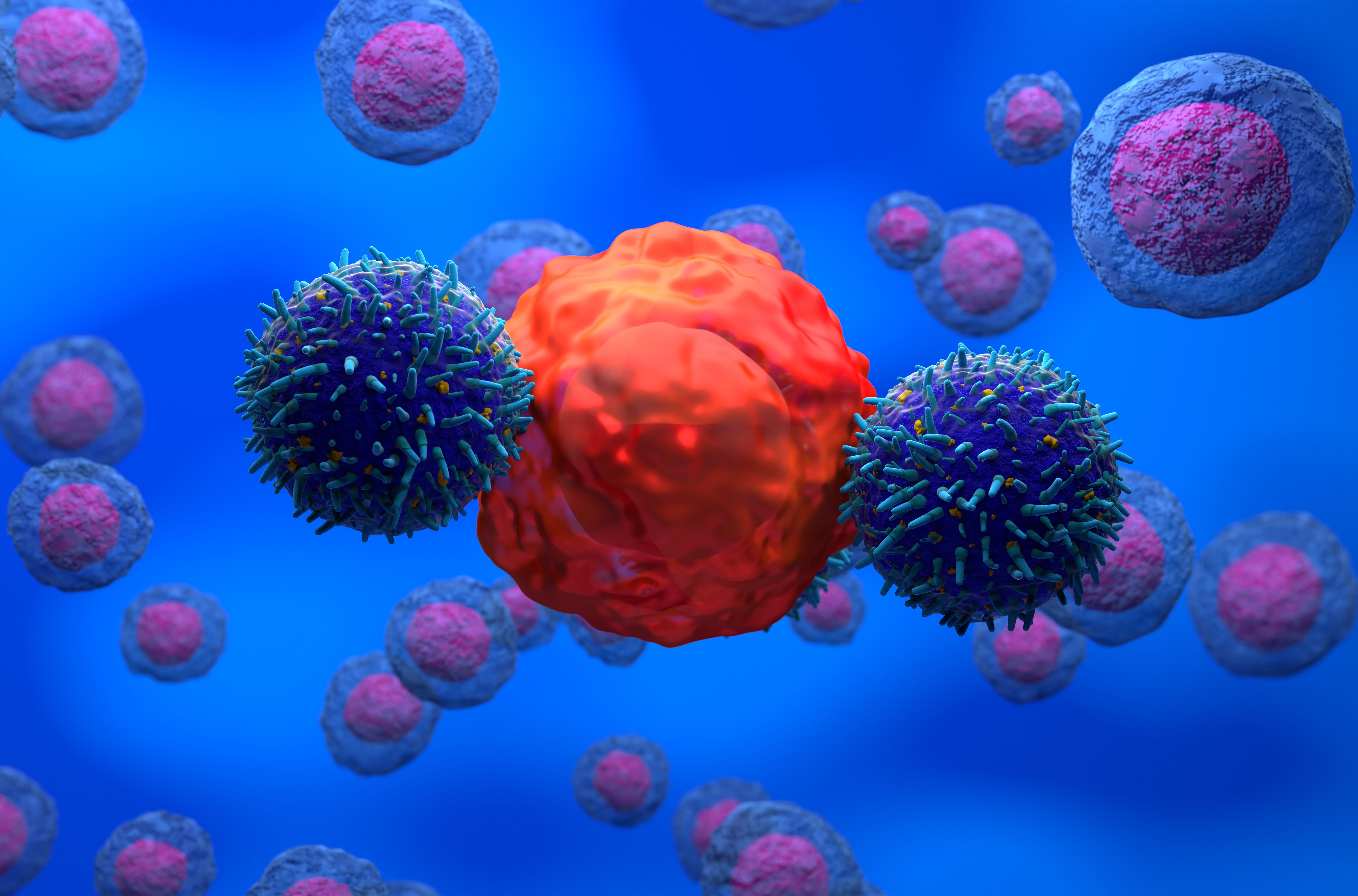Identifying the Link Between CAR T and Cardiac Events
A study published in the Journal of the American College of Cardiology found that chimeric antigen receptor T-cell therapy was associated with fewer major cardiac events than previously thought.
CAR T-cell attack cancer cell and healthy cells © LASZLO - stock.adobe.com

Contemporary chimeric antigen receptor (CAR) T-cell therapy is associated with fewer major adverse cardiovascular events (MACE) than previously thought, according to a prospective study in the Journal of the American College of Cardiology.1
In the study, MACE were defined as cardiovascular death, heart failure, acute coronary syndrome, ischemic stroke, and development of new cardiac arrhythmia.
The study was conducted at the Hospital of the University of Pennsylvania between June 2019 and February 2022. It consisted of 44 patients with a mean age of 58 years, 77% of which were men. Investigators collected vital signs, blood samples, and an echocardiogram before starting, and 2 days, 1 week, 1 month, and 6 months after CAR T-cell infusion. In the event of cytokine release syndrome (CRS), echocardiography was repeated within 72 hours.
“In this prospective study of patients receiving CAR T-cell therapy under strict [cardiovascular] surveillance, the incidence of MACE was <5%, and MACE occurred in patients with CRS within 7 days of therapy. The comparison with the higher occurrence of MACE in earlier retrospective studies with higher rates of CRS supports that earlier intervention, aggressive treatment, and close follow-up during CRS events are essential,” study authors wrote.
Forty-three patients were diagnosed with lymphoma, and 1 was diagnosed with acute lymphoblastic leukemia (ALL). Before receiving CAR T-cell therapy, 37 of 44 (84%) of patients had received anthracycline treatment, 14 of 44 (32%) had received radiation to the chest, and 11 of 44 (25%) had received a stem cell transplant.
With a median follow-up of 487 days (range, 258-622), there were 24 episodes of CRS in 23 patients (52%). Thirteen patients experienced grade 1 CRS, 10 grade 2, and 1 grade 3. The median time to CRS was 4 days. Of these patients, 2 had MACE (heart failure) 6 and 7 days after CAR T-cell infusion. A total of 12 patients (27%) died with a median time to death of 378 days (range, 51-717).
There were several study limitations investigators observed. Primarily, the population studied was relatively small. The duration of follow-up could not eliminate the possibility of longer-term MACE. Additionally, the total lifetime doses of anthracyclines and radiation that patients received were not always known.
The association between CRS and MACE is not fully understood. It is possible that CRS results in reduced cardiac function. Patients with CRS also typically receive large amounts of intravenous fluids, which could worsen the volume-overload state. Fewer patients who had CAR T-cell therapy are also developing CRS at a slower rate, potentially due to more aggressive and earlier treatment now than in the past.1 A study published in Cardio-Oncology concluded that the changes in serial inflammatory cytokine after CAR T-cell therapy suggests that inflammation could be a pathophysiology for MACE and requires further investigation.2